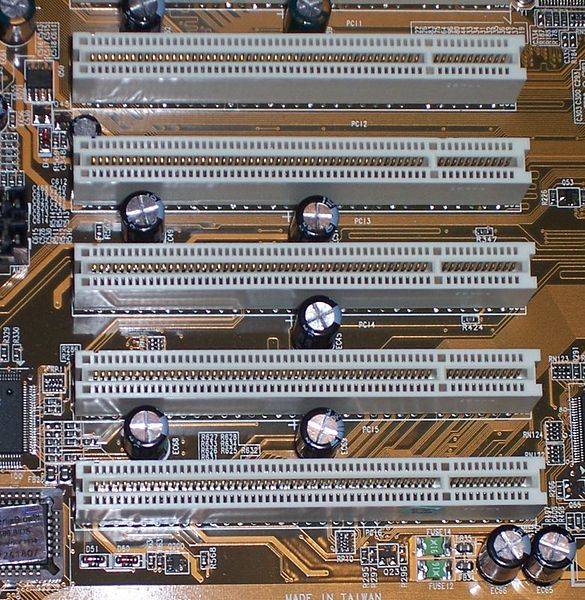Learning Resources
Expansion Slots
Expansion slots are specific slots on a PC motherboard that facilitate the placement of expansion cards. They are located at the back of the computer, they allow more ports to be add to the computer. Example USB 2.0/USB 3.0, HDMI
There are many different types of motherboard expansion slots, but they all have one thing in common: They allow you to plug expansion cards into your computer and increase its functionality. While motherboards often come with on-board sound, wired networking, and video, plugging in a dedicated expansion card will result in this card being used instead of the motherboard's built-in hardware and can increase your computer's gaming, video playback, or sound performance. Expansion cards can also provide new functionality, such as allowing your computer to capture TV signals or access a wireless network.
PCI Express
PCI Express Motherboard Expansion Slot PCI Express (or PCIe) is the newest standard for expansion cards on personal computers. PCI Express is meant to replace older standards like PCI and AGP, mentioned below. PCIe provides significantly more bandwidth, allowing for higher performance video cards and network cards. Video cards in particular are the most common consumer use of these slots, since they need high bandwidth for maximum 3D gaming and graphics performance. PCI Express slots have different versions and numbers of lanes.
PCI
PCI Motherboard Expansion Slots PCI (Peripheral Component Interconnect) is not to be confused with PCI Express, which is meant to replace it. Unlike PCI Express, PCI is an older standard which provides less bandwidth for expansion cards. In spite of the fact that the standard was created in 1993, new motherboards still ship with PCI slots for compatibility purposes.
AGP
AGP Motherboard Expansion Slot The AGP (Accelerated Graphics Port) expansion slot standard was introduced when video cards needed more bandwidth for performance than was provided by PCI. As suggested by the title, AGP slots are used for video cards. However, AGP has been largely phased out in favour of the PCI Express expansion slot standard. Unlike AGP, PCI Express provides higher bandwidth for other types of expansion cards that could use it, such as some newer, high-performance sound and network cards.
ExpressCard & PC Card (or PCMCIA)
PCMCIA Motherboard Expansion Slot These standards are designed to be used with portable computers such as laptops. ExpressCard is the successor to PC Card (also known as PCMCIA), and, like PCIe over PCI, has more bandwidth. Unlike PCI, these types of cards are hot-pluggable (which means you can plug them in while your laptop is running, without shutting it down first).
ISA
ISA Motherboard Expansion Slot ISA (Industry Standard Architecture) is another type of expansion slot you may have heard of. It was the predecessor to PCI and you'll only find it on much older computers.
An image of PCI slot -


